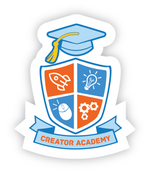AI is everywhere! It is to the twenty-first century what electricity was to the nineteenth and twentieth centuries—a revolutionary innovation that proliferated so pervasively that it now underpins and powers every facet of modern life. You flick light switches on and off every day without thinking about it. In modern societies electricity just is. It’s so seamlessly integrated into our built environments that we hardly notice it’s there.

It’s the same with AI. You might not notice it but you interact with AI’s every day and you interact with more advanced AI’s from one year to the next. Some familiar AI’s include predictive text and speech recognition software, page ranking algorithms on your search engines, the computer systems that assign your plane to an airport taxi bay, the software that detects credit card fraud, the supply chain algorithms that assign stock orders for supermarkets, and the chatbots that offer you customer assistance online. You might even have read news articles or listened to pieces of music that were composed by AI’s.

But those are mostly narrow AI’s that do one thing really well. What matters more is how fast AI is advancing towards artificial general intelligence, which means it could match or exceed human performance in many domains. Even if AI’s never quite make it to that level, they could soon be helping to diagnose your illnesses, drive your car, act as your personal assistant, and do many jobs we once thought only a human could do. Already, AI’s and robots are replacing human workers in factories, legal and accounting firms, and in telemarketing and retail jobs. The work of the future, whether in healthcare, education, business, or manufacturing, will require humans to interact cooperatively with intelligent machines. Increasingly, many of these AI’s will be embodied and we will see a greater confluence between robotics and AI.
Interacting with robots and learning about coding from a young age can help give kids an edge in an increasingly competitive and STEM oriented world. To quote Google’s CEO Sundar Pichai, we’re transitioning to an “AI first world”[1] and it’s incredibly important to think about how that transition could affect our everyday lives.
Your child might not grow up to be a programmer, but learning about robots, AI and computer science will give them valuable skills and help them to understand the language and logic of the systems that are shaping our world and our humanity.
Although automation is currently threatening the longevity of many traditional professions, we mustn't forget that it is also creating new and exciting opportunities. There is currently a shortage of AI experts in the world and an ever increasing demand for them, meaning that graduates are basically guaranteed employment and high starting salaries. In recent years, Peter Lee of Microsoft compared the cost of recruiting top AI talent to the cost of signing an NFL quarterback.[2] By learning about the technologies that are changing human societies your child will have a better chance of staying ahead of the curve of accelerating technological change.
[1] https://www.businessinsider.com.au/sundar-pichai-ai-first-world-2016-4?r=US&IR=T
[2] https://www.technologyreview.com/s/524026/is-google-cornering-the-market-on-deep-learning/
